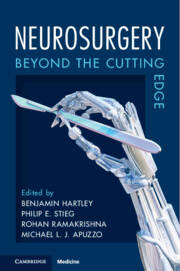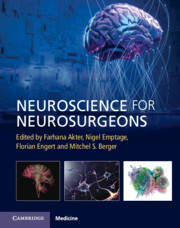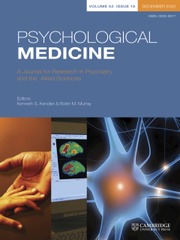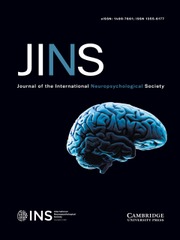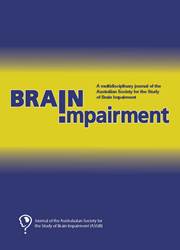Neurosurgery
Neurosurgery is seen as 'inaccessible' to those on the outside, even though collaboration with a variety of non-neurosurgeons is essential to advancing the field. Thus, this book answers important questions for those interested in surgery of the brain: What is the current state of affairs? Where is the field going? And, importantly, how can I be involved? A work of far-reaching appeal, this book explores the evolution and future of brain surgery, detailing key technologies that have and will shape the field of neurosurgery. Readers are led on a journey covering over five thousand years of neurosurgical history, from trepanation in Neolithic France to the understanding of neuroanatomy and finally the technological leaps in the 20th and 21st centuries. Advances such as artificial intelligence, nanotechnology, microscopy, robotics are discussed by the world's leading experts, providing non-neurosurgical readers with a framework for how they can be involved in this thrilling field.
- Appeals to disciplines not typically considered partners to neurosurgery such as AI, nanotechnology and augmented reality, with a focus on the development of ideas and collaboration opportunities between fields relevant to cranial neurosurgery
- Richly illustrated with over 50 colour figures demonstrating the concepts discussed throughout the book
- Edited by a team of leading neurosurgeons and led by the inimitable Michael L.J. Apuzzo, this engaging book is based on decades of experience at the cutting edge of the field
Product details
September 2025Hardback
9781009597883
460 pages
234 × 156 mm
Not yet published - available from September 2025
Table of Contents
- Part I. What Came Before:
- 1. Pivotal Moments in the Development of Modern Neurosurgery Benjamin Hartley, Philip E. Stieg and Michael L. J. Apuzzo
- Part II. Ideas and Concepts in Modern Neurosurgical Innovation:
- 2. Surgical and Other Therapeutic Minimalism: Reducing the Risk Vincent N. Nguyen, Jonathan Dallas, Saman Sizdahkhani, Alexandra N. Demetriou, Arun P. Amar and William Mack
- 3. Neurorestoration – A New Synthesis: Repair, Replace, and Optimize Charles Liu, Aidin Abedi, Jordan L. W. Lam, Yu Tung Jack Lo and Christopher C. Young
- 4. Modulation: Fine Tuning and Resetting of Neurological Function Kate Gelman, Manish Ranjan, Peter Konrad and Ali Rezai
- 5. The Computer as a Tool in Understanding and Managing Brain Disease
- 5a. Artificial Intelligence in Neurosurgery Sumedha Rai, Sean Neifert, Zoran M. Budimlija, Aleksandar Beric and Eric K. Oermann
- 5b. Augmented Reality in Neurosurgery Stefan Vilsmeier
- 5c. Epilepsy Monitoring Kayton Rotenberg, Eun-Hyoung Park, Michelle Chiu, Scellig S. Stone and Joseph R. Madsen
- Part III. Areas of Biological and Technical Advances Driving Neurosurgical Innovation:
- 6. Molecular Neurosurgery: Understanding and Harnessing Human Chemical Structure and Function Daniel Aaronson, Umberto Tosi and Rohan Ramakrishna
- 7. Cell Biology: Creating Structure and Function Nicholas M. Boulis, Yuliya Lakhina and Ramiz H. Kara
- 8. Nanotechnology: Ideas for Therapies at the Atomic Level Mark A. Damante, Jr., David Gibbs, Daniel Kreatsoulas and James Bradley Elder
- 9. Computer Science: The Computer as a Neurosurgical Tool Andrew B. Koo and Joseph King, Jr.
- Part IV. The Surgeon's Armamentarium:
- 10. Microscopy: Enhancing Visualization in the Surgical Challenge Kate Rosen, Evan Bander and Theodore H. Schwartz
- 11. Endoscopy: Minimally Invasive Visualization and Therapy Umberto Tosi and Mark M. Souweidane
- 12. Imaging: Defining the Challenges and Establishing Navigational Maps Alexandra E. Reis, Kristen Leeman, Sara B. Strauss and Apostolos John Tsiouris
- 13. Robotics: Refined Assistance and Enhanced Minimalism Sanju Lama and Garnette Sutherland
- 14. High Energy Forms: Employing the Spectrum of Energy as Surgical Adjuvants
- 14a. Photons and Particles Stylianos Pikis, Georgios Mantziaris, Chloe Dumot and Jason P. Sheehan
- 14b. Radiation Modifiers: Enhancements of Therapeutic Effects Paul Pagnini and Silvia Chiara Formenti
- 14c. Focused Ultrasound: Controlled Mechanical Energy Ying Meng, Karim Mithani, Neal Kassell and Nir Lipsman
- 14d. Laser Energy: Explanation of Light in a Broad Spectrum of Challenges Kelsey A. Templeton and Veronica Chiang
- 15. Virtual Systems: Simulation and Rehearsal of Clinical Skills and Events Antonio Bernardo
- 16. Endovascular Technology: Exploitation of Endovascular Corridors in the Broad Catalogue of Challenges Jennifer E. Kim, Joshua S. Catapano, Badih Daou, Ashutosh P. Jadhav, Andrew Ducruet and Felipe C. Albuquerque
- Part V. The Neurosurgeons of the Future: A Striking Metamorphosis:
- 17. The 'Neurosurgeon'–Quo Vadis Andrew B. Koo, Brianna Carusillo Theriault and Michael L. J. Apuzzo.

